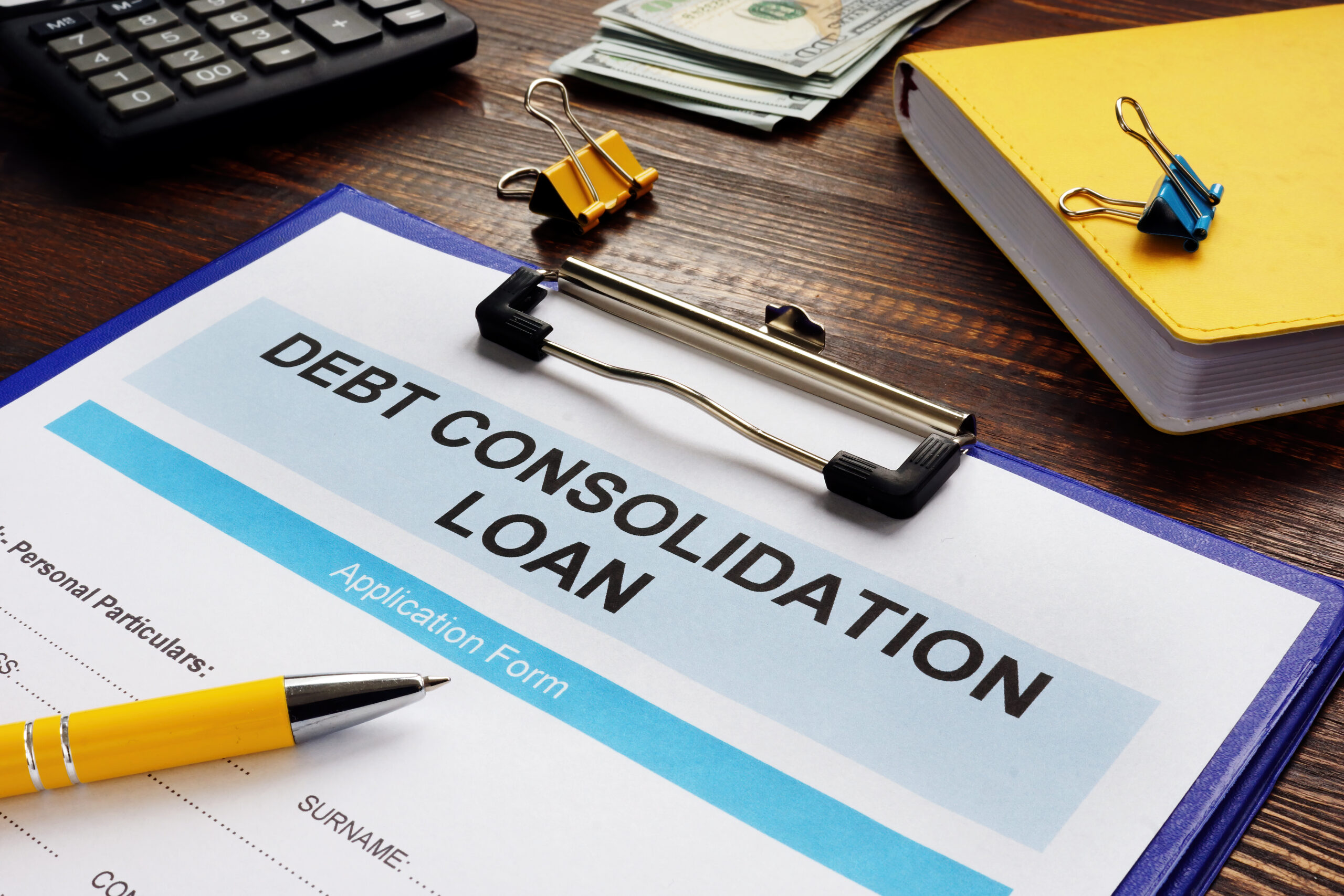Many people find themselves weighed down by overwhelming debt. Consolidating your debts may be a good alternative if you have several loans, credit cards, or other forms of debt that you are having trouble paying off. Debt consolidation is when you get a new loan to pay off all your other obligations so you only have one payment per month. While there are certain positives to consolidating debt, you should weigh them carefully before making a final decision.
Benefits of Merging Debts
Reducing financial complexity is one of the most important benefits of consolidating debt. You will have a single monthly payment to worry about instead of a plethora of them to keep track of. A simpler budget and financial management system may result from this.
Consolidating high-interest debt into one loan with a lower interest rate is one way to save money on interest payments during the life of a loan or credit card. This can provide a more rapid reduction in debt obligations.
In some cases, you may be able to reduce your monthly payment amount as a result of refinancing to a more favorable loan program. When you’re having trouble making ends meet every month, this might be a welcome respite.
Consolidating debts has been linked to a rise in FICO scores, thus doing so might be beneficial. Making your payments on time can lower your credit usage rate, which might have a beneficial effect on your score.
Cons of Combining Debts
One of the major disadvantages of consolidating debt is that it may lengthen the total time it takes to pay off your debt. Hence, even if your interest rate is lower, you may wind up paying more in total interest. You must think about the future when you consolidate your debt.
Collateral, such as a car or home, may be needed for some debt consolidation loans. This means you risk losing the collateral you put up for the loan if you default on the payments.
There might be up-front expenses with a debt consolidation loan, such as an application charge or an origination fee. When calculating the savings from consolidating your debt, it’s crucial to include these fees.
It’s possible that combining your debt won’t actually help you get out from under your financial burden if you’ve gotten into debt owing to excessive spending or other financial problems. In order to keep from incurring debt in the future, it is crucial to deal with the underlying causes.
Ask Yourself: Should I Consolidate My Debt?
Debt consolidation is an option, but it’s important to weigh the benefits and drawbacks before making a decision. While consolidating debt can help some people get their finances in order and save money in the long run, it’s not the best option for everyone.
If you’re looking to streamline your finances and cut down on interest payments, debt consolidation may be the way to go. You should weigh the benefits and drawbacks carefully before making a choice. Consider the interest rates you’d be subject to, any fees you’d have to pay up front, and the consequences of extending the repayment period before deciding on a debt consolidation plan. Debt consolidation, if approached with caution and a dedication to fiscal discipline, may be an effective strategy to get debt under control.
Not everyone can benefit equally from a debt reduction program. Even if it has the potential to be a useful resource, not everyone should necessarily use it. If, for example, you just have a modest amount of debt or are having trouble keeping up with payments because of unemployment or some other financial setback, consolidation may not be the best choice for you.
Finding the finest loan terms and interest rates is essential if you want to consolidate your debt. Don’t just sign for a loan until you’ve read all the fine print and completely comprehend what you’re agreeing to. Before signing the dotted line, be sure you fully understand all costs and penalties associated with the debt consolidation loan.
Consolidating debt is just one option for dealing with financial difficulties; there are many more. You may, for instance, try to reduce your interest rate through negotiations with your creditors or organize your obligations so that you pay off the ones with the highest rates of interest first. If you need assistance getting back on track financially, credit counseling services are available to work with you to create a customized plan to pay off your debts.
Getting out of debt is possible; you just need to make a plan, stick to it, and put in the effort. You can get your financial house in order again and secure your financial future with some time, self-control, and determination.
Consolidating debt is a viable option for those who want to reduce their financial complexity and interest costs. But before you make a choice, you should weigh the benefits and drawbacks. Debt consolidation can be a good option if it helps you save money, but you should first consider the interest rates you’d be paying, any up-front fees, and any other potential consequences. It’s important to remember that you don’t have to settle for just one method of debt relief; instead, you should consider the various possibilities available to you. You can pay off your debts and improve your financial situation with hard work and determination.

